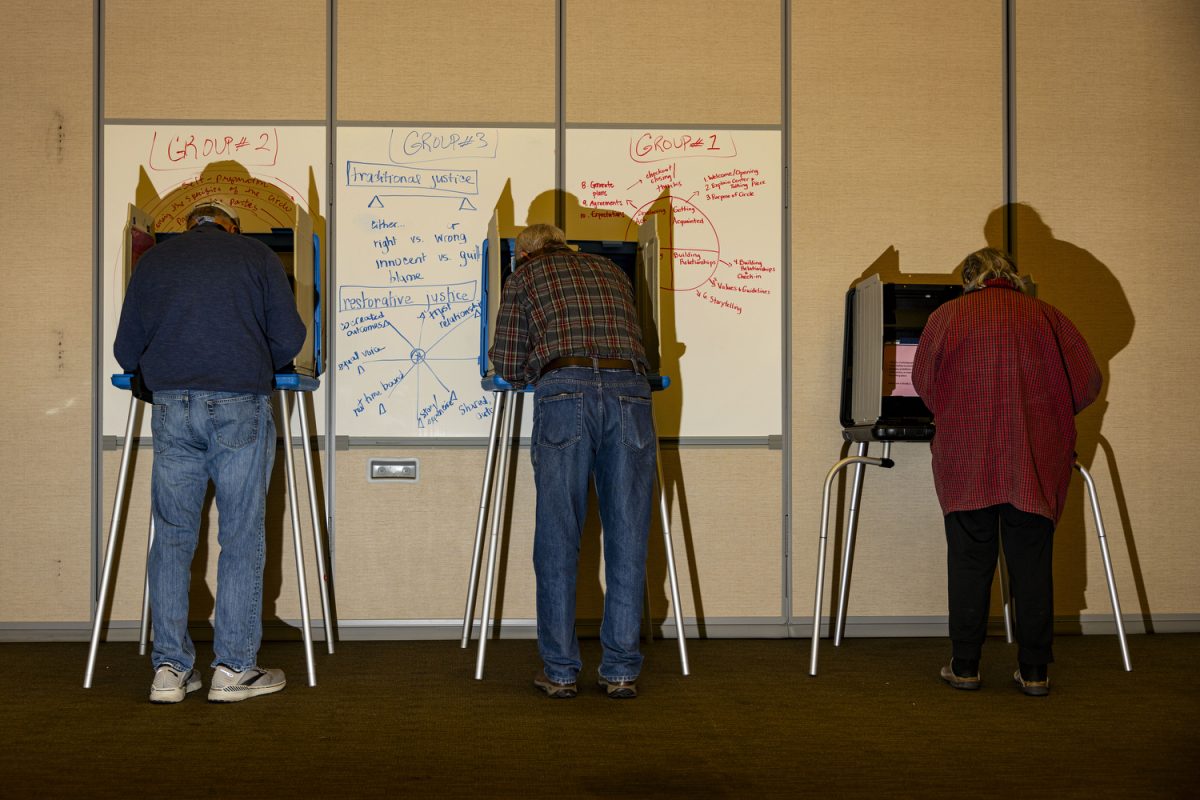The Iowa City City Council has begun the process of reviewing its charter to determine if there will be any changes dictating how the city operates and is governed.
Every ten years, a Charter Review Commission is created to review the existing charter, which is a legal document that establishes the framework for the city, and recommends policy amendments that are deemed fit for the council.
Eric Goers, Iowa City’s city attorney who oversees the commission, said the Charter Review Commission lasts no more than a year.
“[The commission is] to ensure an independent body of residents would take a deep look at the charter and consider whether any portion is in need of an update,” Goers said.
John Balmer, the commission’s chair, said the city is now in its 50th year of its current charter and will hear from the community at two public forums before making any recommendations to the city council. The first forum occurred on Sept. 10, and the second will occur on Sept. 28 at 10:30 a.m.
Balmer said there are two topics that have been discussed in previous charter review commissions in prior years that were likely to generate public interest.
The first topic is whether or not the mayor should be directly elected by the public, instead of the city’s current method that involves the city council selecting the mayor every two years. The mayoral election process has been done for the past 70 years, Balmer said.
The second topic pertains to how the three district candidates will be elected going forward, he said.
Currently, the council has seven members, three of whom are from a specific district — A, B, or C — and four of whom are members-at-large, meaning they can live anywhere within the city. In general elections, all citizens can cast their vote for any councilor regardless of which district the councilor is running for and where the voter lives.
RELATED: Former, future IC city councilor proposes changing city election system.
However, if more than two candidates run for the same district seat, leading to a primary election, only citizens who live within that district can vote in the primary to determine which candidates will advance to the general election. In the past, Balmer said the council had five at-large council seats.
Iowa City’s current election and district system has caused confusion for residents in the past. Andrew Dunn, a councilor representing District C, said thinks the government selection should be more intuitive.
“Even when you explain it to people who are well-intentioned, who are long-term citizens of the community, they don’t understand how it works,” Dunn said. “And I think that’s fundamentally wrong. I think it’s fundamentally broken.”
Dunn said having no elections for Iowa City’s mayor has been brought up during public forums.
“A lot of people think they do elect the mayor, but they don’t. The city council gets to choose who the mayor is,” Dunn said.
He also expressed doubts that anyone on the commission or the council has any interest in changing the form of government. However, he believes Iowa City citizens care about their leadership, and the ability to elect a mayor is a priority.
Dunn also said that representation is an issue that is already being discussed among members of the council and in the public forums regarding district elections and their operations.
“I think we should be able to represent the areas, specifically those who are not well represented in city government, state government, federal. At the local level, that is a way to make the situation better,” Dunn said
He said changing the system to have voters just from a candidate’s district vote will do great things for the city’s democracy.
“You want to make it cheaper for people to run for office — if they run in their own district, you can make it more representative, you can run for your part of the community,” Dunn said. “I think that if they implemented those types of changes, we would see really good things happening in Iowa City in terms of representation.”



